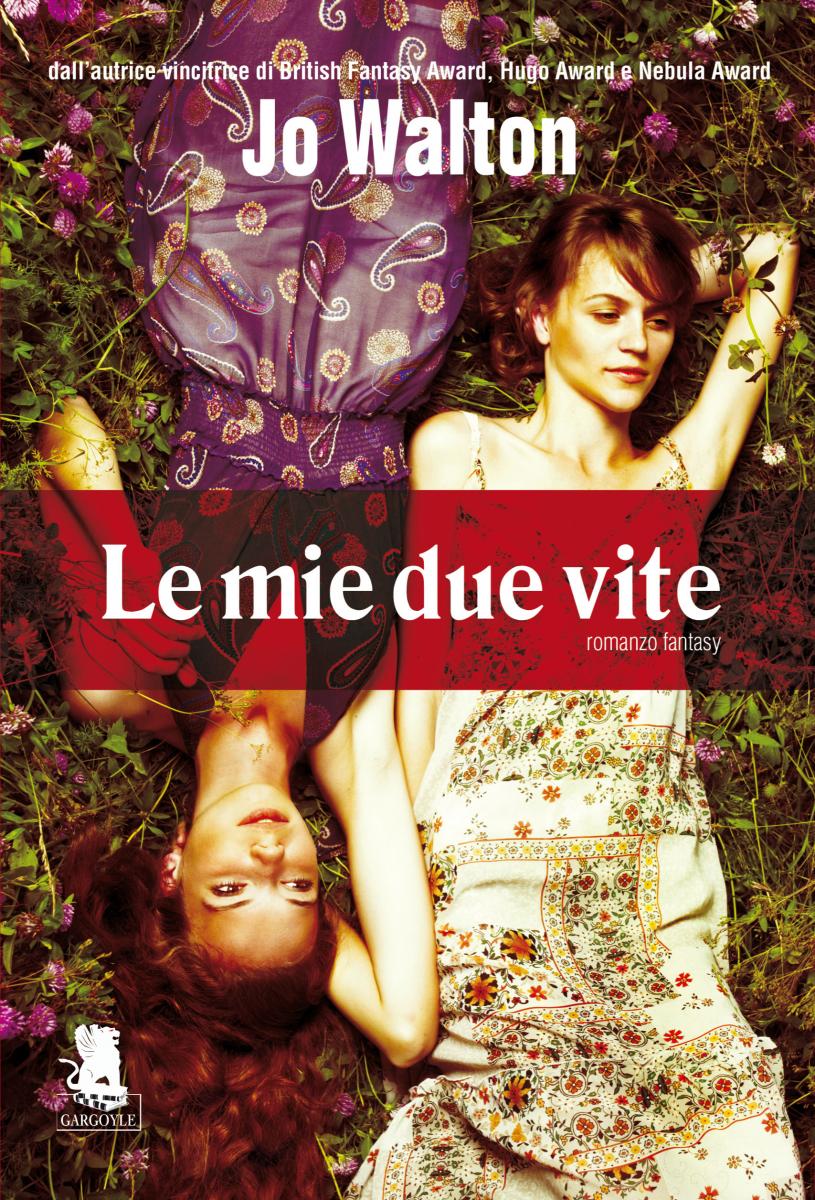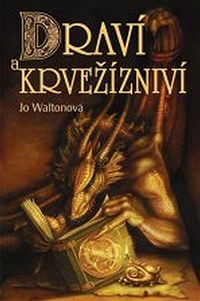This is a partial list I compiled in 2000 of of some of the books I found useful when doing research for the Sulien books.
Original Sources
Romano-British and Welsh
The Celtic Sources For the Arthurian Legend Jon B. Coe and Simon Young (trans) Llanerch Publishers, 1995. This book contains extracts from Gildas, “Nennius”, the Triads, Culhwch and Olwen, innumerable saints’ lives and obscure bits of poem. It has them all in the original language and in translation on the facing page, which is the ideal way to do it. I’d say it was the single most useful book on my desk, and the one that’s most often been at the top of the pile.
The Penguin Book of Welsh Verse Conran, Anthony, (trans) Penguin Books, 1967.
Studies in Early Celtic Nature Poetry Jackson, Kenneth, Llanerch Publishers, 1995, (originally 1935.) This book is a study of the poetry, but it contains and translates quite a lot of things that are really hard to find elsewhere.
The Mabinogion Jones, Gwyn and Jones, Thomas (trans) Everyman’s Library, 1949. Far and away the best translation.
The Black Book of Carmarthen trans Pennar, Meirion, Llanerch Press, 1989. Absolutely wonderful translation, both accurate and poetic, and the original on facing page.
The Taliessin Poems trans Pennar, Meirion.
Gildas The Ruin of Britain and Other Works trans. Winterbottom, M. While you have to hand it to the translator for the title, the effect of reading the whole thing is a lot of whining.
Saxon
The Earliest English Poems Alexander, Michael (trans) Penguin Classics, 1966.
The Anglo-Saxon Chronicle Garmonsway, G.N. (trans), Everyman University Library, 1954.
The Ecclesiastical History of the English Nation The Venerable Bede, Stevens, J (trans) Everyman’s Library, 1910.
Anglo-Saxon Prose trans Michael Swanton, Everyman Library, 1975. Great for codes of law and glimpses of the Saxon worldview.
Roman
Roman Civilization Sourcebook II: The Empire Lewis, Naphthali & Reinhold, Meyer, (eds & trans) Harper Torchbooks 1955. This pulls together inscriptions and quotes from texts on useful subjects for the whole Roman Empire. It’s invaluable for the epigraphic stuff.
Christian
The Book of Common Prayer and Administration of the Sacraments and Other Rites and Ceremonies of the Church According to the Use of The Church of England Together With the Psalter or Psalms of David Oxford University Press, 1935 edition of the 1552 revision of Thomas Cranmer’s 1548 book. The language is wonderful.
The Word HarperCollins, 1998, edition of the King James Version of the bible, in an edition with a cover that makes it look like a fantasy novel. The language is even more wonderful.
Irish
Early Irish Legends Dillon, Myles, synopses and discussion of lots of Irish stories.
The Tain Kinsella, Thomas (trans) Oxford University Press, 1969. This is a poetic and powerful translation.
Celtic Mythology Thomas Rollaston. This contains synopses of almost all the major Irish legends. It’s also pretty readable, and available in a cheap edition. Skip the first few chapters, which are outdated and silly. It’s much better than the Penguin trans Jeffrey Gantz Boring Irish Myths and Legends, oops, no, for “boring”, read “early”, which has everything in but with no incentive whatsoever to read it
Gods and Fighting Men Lady Gregory. A retelling of the Irish stories in a way that makes clear they’re supposed to be a romp, not deadly serious.
Modern Reference Works
Berresford Ellis, Peter Dictionary of Celtic Mythology Constable, 1992. This book is nothing like as good or as thorough as his Irish one, and it has some odd errors and fails to make some connections.
Berresford Ellis, Peter Dictionary of Irish Mythology Oxford Reference, 1987. This, on the other hand, is a really solid reference book, which I’d recommend.
Briggs, Katherine A Dictionary of Fairies Penguin Books, 1976. One couldn’t ask for a more comprehensive listing of British fairy folklore. It’s entertainingly written too. This is what reference books ought to be like. I didn’t use it very much for this project, actually, but whenever I needed something it was always easy to find immediately.
Brockhampton Reference Dictionary of Classical Mythology Brockhampton Reference, 1995. I don’t know why I keep this book around. My main use of it is to look something up, roll my eyes and say that I knew that already and why couldn’t it tell me something useful, and put it back again. I wouldn’t recommend this. I used to have a much better Classical Mythology dictionary and I wish I could find it again. As it is I have a choice of this one, which is infuriating, or the Graves, which is infuriating in a different way.
Coghlin, Ronan The Illustrated Encyclopaedia of Arthurian Legends This looks like a coffee table book, but while it is admittedly full of pictures, it’s also pretty good. It cites its sources well.
Conolly, Peter The Roman Army
Graves, Robert The Greek Myths Rather excessively speculative but always entertaining
Hogg, A.H.A. A Guide to the Hill-Forts of Britain, Paladin, 1984. If you want to find a hill-fort, this is the book for you. There aren’t many left out, and there’s good explanations on how they were built and maintained as well. I have to confess it’s also affectionately known as “The British Book of Boring Hillforts” to distinguish it from the rest of the much less good collection of hill fort books lying around the house.
Johnson, James Placenames of England and Wales Bracken Books, originally 1915, reprinted 1994. This is a really solid piece of work on placename etymology, it’s extremely been useful.
Ward, John Roman Britain Parkgate Books, originally 1911, reprinted 1997. This is a very old book and it’s out of date and Victorian in attitude. It’s also not easy to read. But it contains highly useful lists of things, and names, and it’s reliable, for 1911 values of reliable.
Other Modern Books
Brooks, N.P. (ed.) Latin and the Vernacular Languages in Early Medieval Britain
Dark, Ken Civitas to Kingdom Terrific historical survey of the period.
Dark, Ken (ed) External Contacts 1996, An even more terrific collection of essays about the period, including wonderful information from recent excavations and ship excavations.
De Camp, Sprague The Ancient Engineers Probably the best introduction to the history of technology imaginable. This book ought to be in print. I thoroughly recommend it to anyone who finds that sort of thing interesting
Engels, D.W. Alexander the Great and the Logistics of the Macedonian Army OK, it’s way out of period, but any books on logistics are valuable for trying to work out how fast armies can move and what supplies they need, and this one was written by a man who had done the job for the British army in India.
Fletcher, Richard The Conversion of Europe: From Paganism to Christianity 371-1386 AD Harper Collins 1997. The only thing wrong with this book is that I was more than half way through Book I when I managed to get hold of it. I borrowed it from the library so often that I felt I had to buy my own copy when I got the opportunity. It’s a remarkably interesting book, and proves that the truth is not only stranger but much more complex than fiction can get away with.
Gadiner, R. and Christensen, A.E. The Earliest Ships
Gies and Gies, Cathedral, Forge and Waterwheel 1994. A really good history of technology book that covers the dark ages well.
Graves, Robert The White Goddess This book is a remarkably entertaining load of old codswallop, it’s not history, it’s not literary criticism, it’s definitely not scholarship, it’s mostly about the inside of Graves’ own head. I once used it to invent the magic system for a roleplaying game. It’s been extremely influential on some strands of modern paganism. I didn’t touch it at all when working on this project, I’d certainly never recommend that anyone confuse it with history, but I can’t deny that it did influence some of my thinking about druidic riddling and possibly some other metaphysical aspects of the work.
Jackson, Kenneth Language and History in Early Britain 1953.
Jones, A.H.M. The Later Roman Empire
Jones, M. The End of Roman Britain
Laing, M. and Williamson, K. Speaking in Our Tongues: Proceedings of a Colloquium on Medieval Dialectology and Related Disciplines 1994
Morris, John The Age of Arthur Phoenix, 1993. A lot of historians hate this book, and there are indeed faults with it. However, it’s eminently readable, acknowledged to be correct in a lot of detail, and it pulls things together that nobody had thought to look at together before. I’m so glad I’m not writing history so I could use Morris with a cheerful heart.
Snyder, Christopher, An Age of Tyrants
Stark, R. The Rise of Christianity
Thompson, E.A. Romans and Barbarians – The Decline of the Western Empire 1982.
Thompson, E.A. Saint Germanus and the End of Roman Britain A deeply readable book, beautifully written, right up there among my top ten history books of all time for being something I’d want to have read anyway.
Webster, Graham The British Celts and Their Gods Under Rome Despite a tendency to assume every bucket lost down a well is a deliberate votive offering, this book is very thorough and modern and a solid piece of work which I ought to like more than I do. I don’t agree with a lot of Webster’s conclusions about Romano-Celtic religion, but he’s found everything that even might have religious significance in Roman Britain and discusses it.
Wheelwright, J. Amazons and Military Maids While this covers only attested cases of fighting women, all of them considerably later than Sulien and most of them in disguise, it was still very valuable as evidence it was possible for women to do these things. It’s an interesting book anyway.
Whitlock, Dorothy The Beginnings of English Society Pelican Books, 1952. A good general beginning book on Saxon culture.



